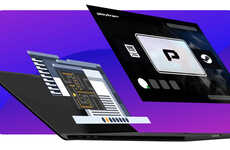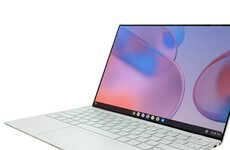
Open Source Will Rule When Desktops Go the Way of the Dinosaurs
Jessica Marcel — October 10, 2009 — Tech
References: xkcd & crunchgear
Open source enthusiasts have been chomping at the bit in making open source the most popular operating system on desktops.
CrunchGear, however, says that the fight to win over desktop users is a futile one. This isn’t necessarily because open source is the territory of enthusiasts (and not of typical users), but because the death of the desktop is soon coming. Open source is trampling the competition on mobile platforms (hello Android) like netbooks and cell phones—and mobile platforms are the future. They’ve already made their mark in the present.
The death of the desktop will still take a while. And really, the immobile home platform probably won’t completely disappear. But trying to win over the desktop is like worrying if you’ll be a heavyweight in laser discs.
CrunchGear, however, says that the fight to win over desktop users is a futile one. This isn’t necessarily because open source is the territory of enthusiasts (and not of typical users), but because the death of the desktop is soon coming. Open source is trampling the competition on mobile platforms (hello Android) like netbooks and cell phones—and mobile platforms are the future. They’ve already made their mark in the present.
The death of the desktop will still take a while. And really, the immobile home platform probably won’t completely disappear. But trying to win over the desktop is like worrying if you’ll be a heavyweight in laser discs.
Trend Themes
1. Rise of Open Source - The popularity of open source operating systems is increasing, creating opportunities for disruptive innovation in software development and collaboration.
2. Mobile Platform Dominance - Mobile platforms like Android are surpassing desktops in popularity, indicating potential disruptive innovation in mobile technology and app development.
3. Transition to Immobility - While the desktop won't completely disappear, the shift towards mobile platforms suggests potential disruptive innovation in home technology and connectivity.
Industry Implications
1. Software Development - The rise of open source operating systems presents disruptive innovation opportunities for software developers to create new and improved applications.
2. Mobile Technology - The dominance of mobile platforms over desktops opens up disruptive innovation opportunities in mobile device manufacturing and technology advancements.
3. Home Technology - The transition towards immobility in computing indicates potential disruptive innovation opportunities in home technology solutions and connectivity devices.
0.8
Score
Popularity
Activity
Freshness























